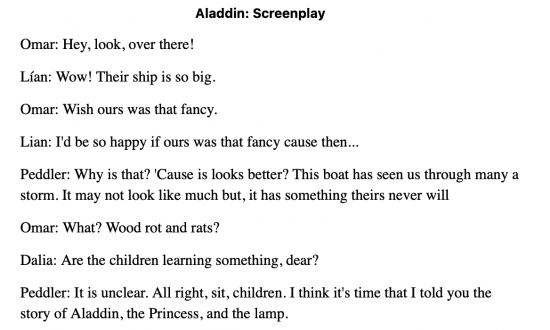Based on an earlier Three Page Challenge entry — and with the blessing of writer Andrew McDonald — I’ve posted a [new video](https://youtu.be/uSJw2Hvqo64) in which I revise a scene in real time. Along the way, I discuss how small choices on the page can help (or hurt) a reader’s ability to understand where characters are and what’s happening.
As a fun bonus, Andrew has also filmed a [demo version](https://youtu.be/s7_z3wbhVcE) of his vision.
